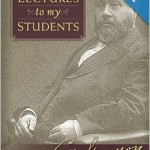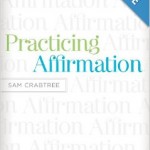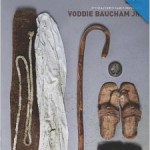
In Mark 9:14-27 Jesus comes down from the mountain of Transfiguration to find a demonically-possessed, epileptic boy. In yet another compassionate display of His sovereign Lordship casts out the demon and restores the boy to health.
Sometime later that day the disciples ask Jesus in 9:28, “Why could we not cast it out?” Remember back in chapter six that the twelve received authority over evil spirits and had successfully driven out many demons before this incident, so why their failure now? Jesus answers in 9:29 by saying, “This kind cannot be driven out by anything but prayer.” It seems that the disciples took for granted the power given to them or they thought was inherent now in them. So they no longer prayerfully depended on God for His power and they revealed their lack of faith. There is something in the disciples’ lack of prayer and lack of faith worthy of meditation.
I love symphonies and classical music. Last week as I was writing this sermon a particular song came on that moved me with its unusual grandeur. We might think of Mark’s gospel as a symphony that is sounding for the strength of this Savior with elegance and power as it moves towards the crescendo at Calvary. And does this symphony move you? Let’s consider two ways, from our text, in which this Savior’s strength should move us.
Two Movements from the Savior’s Strength
First, the movement of faith. This text is all about the power of Christ over the forces of darkness and the faith that power demands from us. In 9:19 He rebukes the lack of faith permeating the crowds and scribes; in 9:23 He says all things are possible for those who believe; in 9:24 the boy’s father cries our, “I believe; help my unbelief!” And the unique thing about this text is how it commends small faith. It tells us that small faith in this strong Savior is enough. The father’s faith was small, but it was still enough for Christ to respond with strength.
Let us remember that salvation depends not on the strength of our faith, but on the strength of the one our faith is in – the one who saves. An illustration might be helpful here.
Several weeks back we had our boys at a playground and I set them up high on ledge and said, “Alright, jump to Daddy.” I’m sure many of you have done the same. Hudson only needed a little prodding to take the leap of faith. He’s done this before and knows that Daddy will catch him. Owen however is smaller, the jump looks much bigger, and he really hadn’t jumped from this height before. He didn’t want to do it at first and it took quite a bit of prodding, but he eventually held his breath and jumped with a shaking little body of fright.
What they placed their faith in (my ability to catch them) mattered more than how vibrant their faith was. The same is true when it comes to believing in Jesus. It’s not the quality of our faith that saves, but the object of our faith – Jesus Christ – that saves. Also, it’s not we see from this text that it not as though God requires a certain strength of faith to welcome any who would believe. Mark 9 reminds us that true faith in Christ, no matter how small it is, is still enough because it falls on this sovereign and strong Savior. See the strength of Jesus and be moved to faith. The second movement in our text is . . .
The movement of prayer. Prayer is little more than faith turned towards God. Both faith and prayer testify that spiritual power is not in us, but in God, and both wait upon His promise to answer. Growing faith will lead to growing prayers. For us as a congregation, we long to be filled with faith in our Sovereign God. One way we show our faith is not only in the fact that we pray often, but that we love to pray often. What then does your practice of and delight in prayer say about your faith? It is not stretch to say that all of us would probably say that our prayer life reveals a faith smaller than we would hold. Rather than fall into the serpent’s condemnation on this point, let’s be encouraged to cry out, “Father, help my unbelief!”
The second half of Mark’s gospel is consumed with Jesus’ mission to suffer and die, and the disciples inability to understand this mission. The exorcism of Mark 9:14-29 highlights the disciple’s spiritual weakness and lack of faith, but thankfully it doesn’t leave us with only negative deficiencies. It shows up the priority of faith and prayer in following Christ. Let us crowd around Him in faith collectively, come to Him in faith individually, and call on Him in faith, beholding His power and remembering: Small faith in this strong Savior is enough.
 Back in 2009 John Piper delivered a message to the American Association of Christian Counselors and it proved to be one of the strangest interactions between speaker and audience I have ever seen.
Back in 2009 John Piper delivered a message to the American Association of Christian Counselors and it proved to be one of the strangest interactions between speaker and audience I have ever seen.








